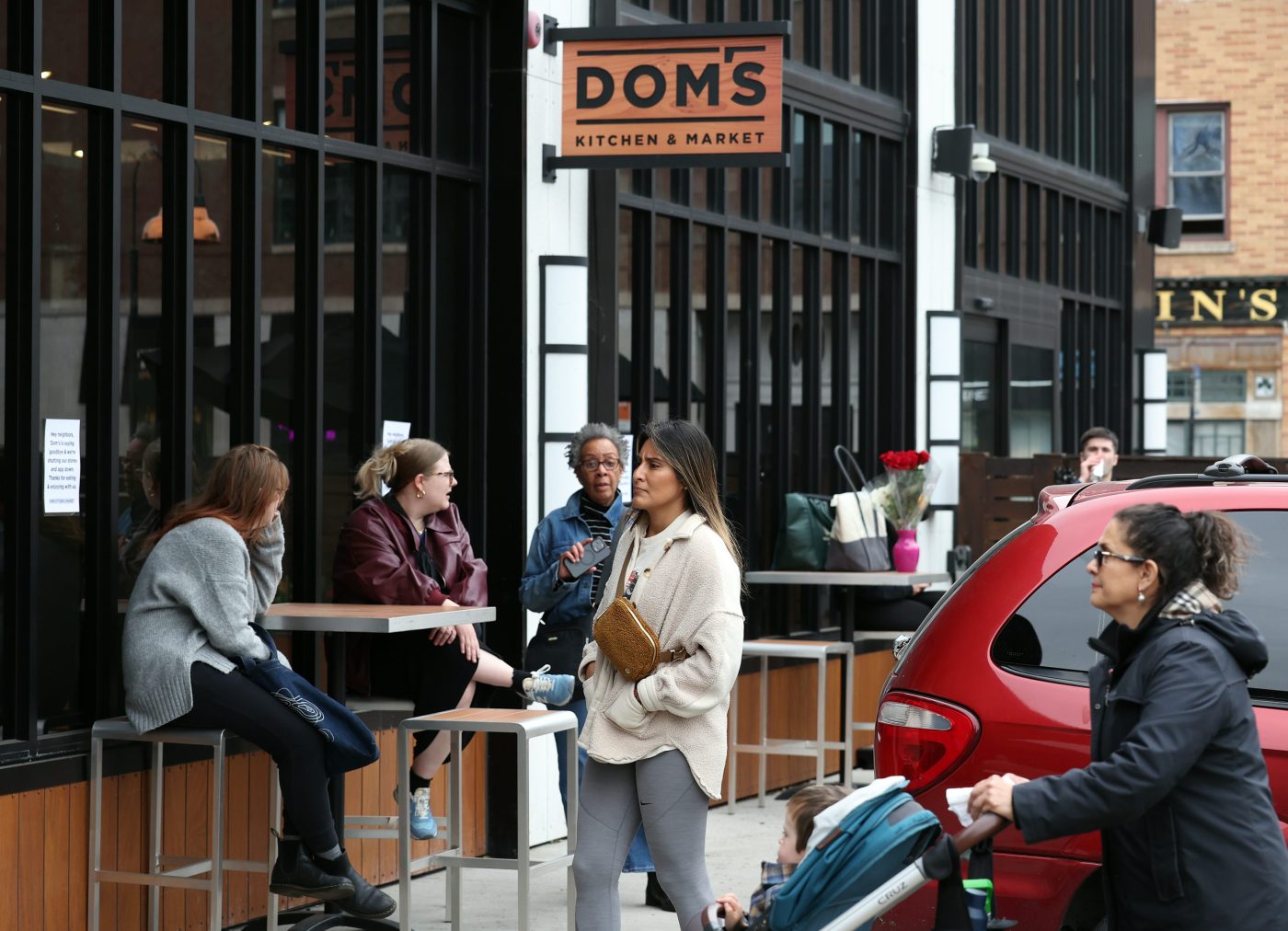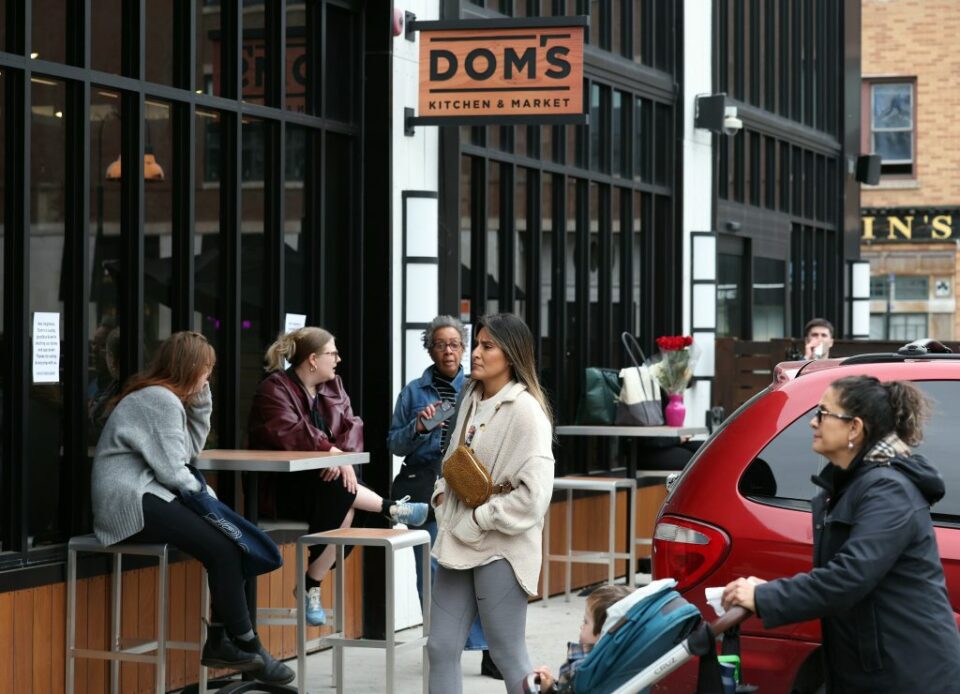
On Tuesday, a company called Outfox Hospitality suddenly found out it had outfoxed itself.
The amalgam of the upscale Foxtrot convenience stores and the posh supermarket known as Dom’s Kitchen & Market, collapsed in an ugly heap. Thirty-three Foxtrot stores in Chicago, Washington, D.C., and Texas were closed immediately, as were the two locations of Dom’s Kitchen in Chicago’s Old Town and Lincoln Park neighborhoods. The exit was abrupt, and most employees (and all customers) were kept in the dark until an all-hands meeting on that very morning. Instead of severance, workers were reduced to swigging wine from the shelf or taking perishable salads home. On X and elsewhere, the company said it had “explored many avenues to continue the business but found no viable option despite good faith and exhaustive efforts.”
It is always sad when people lose their jobs, especially without warning. But if you followed Chicago media, you’d think this had never happened before.
Axios Chicago went into full-on mourning, describing how “folks gathered’ at the Dom’s on Halsted Street, as if this were a funeral of a beloved citizen, not the closing of an up-market grocery store that had only been there since June 2021. Marshall Field’s this was not. Another local outlet interviewed a young Chicagoan who said, in essence and seemingly in all seriousness, that the presence of Foxtrot was a primary reason why they had moved to Chicago.
There are many good reasons to move to Chicago. We’ll just leave it here that counting on the ongoing presence of a particular convenience store is not one of them.
The Washington Post described the creation of “one last latte,” as if there weren’t six other options within six blocks, while progressive social media looked for the usual villains — venture capitalists and other rich people who had squeezed the businesses, expanded too much too soon, and must now be held legally “accountable’ and maybe even sent to jail.
Media types might have loved the espresso offerings and the pastries at Foxtrot and the prime steaks and wine tastings at Dom’s, but most Chicagoans were less interested, not least because Foxtrot, which was born of an MBA project at the University of Chicago, was less than interested in them.
No one who walked into any of the outlets owned by Outfox Hospitality, and stared at a price tag on one of the items for sale, made a purchase on the basis of a good deal. No such deals were offered.
Foxtrot’s founding philosophy, dating back only to 2015, was that wealthy people aren’t especially fond of walking into a 7-Eleven or the downscale equivalent, and if more congenial surroundings could be afforded them, along with a reliable stock of craft beers and locally sourced hummus, they’d probably pay a lot more for a pint of last-minute milk. To say that here was a business dependent on urban convenience seekers with a lot of disposable income would understated.
Bankruptcies are complicated matters, and this one no doubt has further revelations to come. But Foxtrot clearly suffered from the usual causes: declining sales, rising labor costs, over-ambitious expansion plans and internal turmoil. As writ large in the number of unpaid invoices causing vulnerable vendors increasing heartburn. According to Modern Retail, which did an unemotional dive into the sorry if well-obscured situation, Foxtrot fell some 20% below its sales goals in 2023.
During the pandemic, Foxtrot went all in on online sales. One store of our close acquaintance sacrificed all of its pre-existing ambiance (such as it was) to become a warehouse for delivery drivers, who took over its retail floor and outside tables. Foxtrot was exploiting an absurdity (one of many) of Illinois law when it came to booze; it’s easier to deliver from an actual retail store than a warehouse. So that clearly led to some confusion of purpose, especially as the pandemic obsession with last-mile deliveries waned by the time people preferred to get out of the house. And more recently, of course, as increasing prices everywhere made people more sensitive to cost.
To some extent, both Foxtrot and Dom’s, especially, were in the restaurant business, and this was another reminder of how difficult it is becoming to do business in high-cost, high-regulation markets such as Chicago and Washington.
We’re sorry about the people who lost their jobs so suddenly. But we’ll also note that the labor market remains strong in this sector and businesses have been failing as long as there have been businesses, sometimes due to malfeasance but more often due to a simple failure to adapt to changing times.
When the financing is no longer forthcoming or the pile of bills overwhelm, it’s rarely pretty. As any smart economist will tell you, risk and failure are part of our capitalist system.
That said, it behooves any supplier or employee to keep an eye open for irregularities. Extending credit, whether that means dollar amounts or your loyalty, carries risks as well as reward. The relative stability of America’s economy means that younger people, especially, tend to forget what can and does happen.
Sometimes, of course, another group gets a shot at the same brand: less than two weeks after North Aurora-based Oberweis Dairy filed for Chapter 11 bankruptcy protection, it announced the receipt of bids to take the milk and ice cream business out of bankruptcy. Outfox Hospitality might be liquidating, but its brands remain assets that could be sold. So Foxtrot could yet rise again. Likewise, there are now some prime locations in upscale neighborhoods awaiting entrepreneurs with new ideas.
For Chicago, though, here’s another cautionary tale. In this kind of ever-changing environment, does the city really want to own and operate a grocery store?
The Editorial Board , 2024-04-29 12:15:13
Source link


